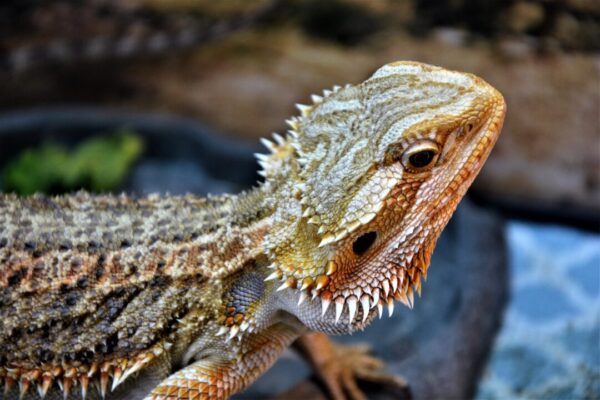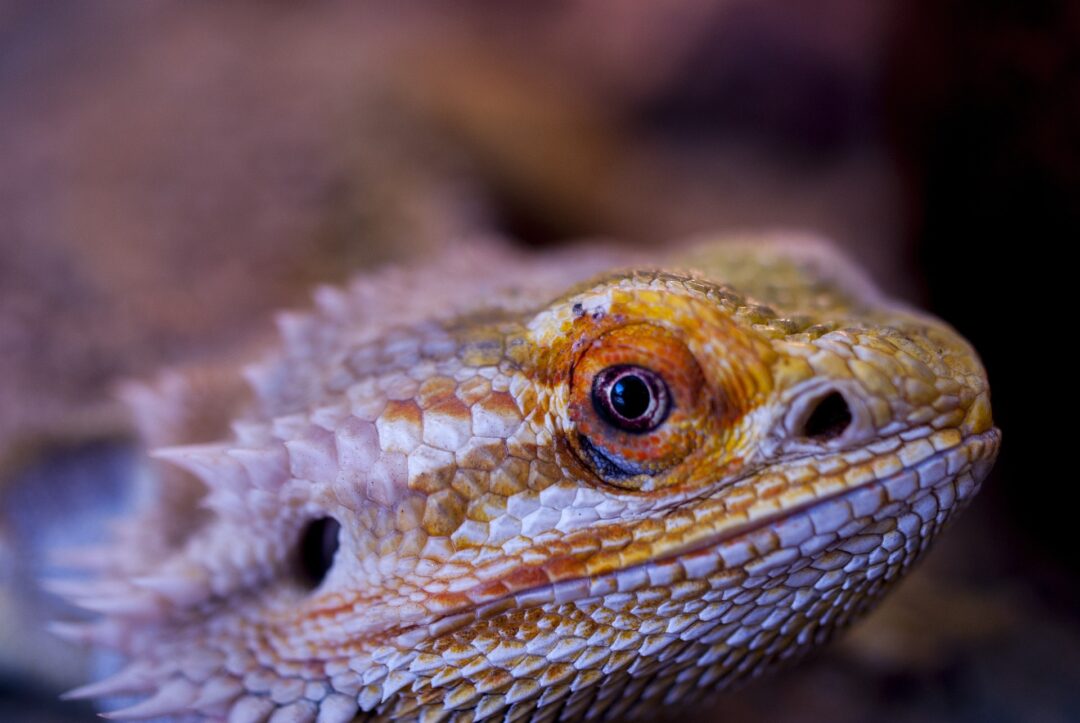Bearded dragons are one of the most popular reptile pets due to their friendly demeanor, ease of care, and unique appearance.
However, one aspect of their care that often raises questions is using red lights.
While red lights are often marketed as beneficial for reptiles, it is important to understand their potential impact on bearded dragons. So, are red lights bad for bearded dragons?
Are Red Lights Bad for Bearded Dragons?
While red lights may not be as harmful as other night-time light sources, they are not recommended for use with bearded dragons.
Bearded dragons are active during the day and sleep at night.
They need bright, full-spectrum light to support their health, including UVB light for the synthesis of vitamin D3 and for maintaining proper calcium metabolism.
Red lights do not provide the appropriate spectrum of light that bearded dragons need.
Additionally, red lights can disrupt the animal’s sleep patterns and interfere with its natural circadian rhythm.
It’s best to provide bright white light during the day and a dark environment at night for your bearded dragon.
Why Are Red Bulbs Bad For Bearded Dragons?
Interference with Sleep Cycle
Bearded dragons are diurnal animals that are active during the day and sleep at night.
Changes influence the natural circadian rhythm of a bearded dragon in light and temperature.
Red light, often marketed as a “nighttime” or “sleep” light for reptiles, can interfere with this natural rhythm and disrupt the dragon’s sleep cycle.
It can lead to stress and health problems over time.
Damage to Eyes
Red light, even at low intensities, can cause damage to the eyes of bearded dragons.
It is because red light has a longer wavelength than other colors and can penetrate deeper into the eye, causing damage to sensitive tissues and structures.
Prolonged exposure to red light can lead to irreversible damage, including cataracts and retinal damage.
Cause of Stress
Constant exposure to red light can cause stress to bearded dragons.
Stress can weaken the immune system and make the animal more susceptible to illness and disease.
Additionally, stress can negatively impact the animal’s behavior, causing it to become aggressive or lethargic.
To avoid stress, it is best to provide a temperature gradient for the bearded dragon’s basking area during the day and then turn off all lights at night to allow for a natural sleep cycle.
Can I Use Red Lights During The Day?
During the day, bearded dragons need bright, full-spectrum light to help them produce vitamin D3 and regulate their circadian rhythm.
A combination of natural sunlight and artificial UVB lighting can provide this.
It’s also important to note that red lights do not emit UVB, which is essential to a bearded dragon’s lighting needs.
Without adequate UVB exposure, they can develop health problems like a metabolic bone disease.
Alternatives to Red Lights for Bearded Dragons

Ceramic Heaters
Ceramic heaters (CHEs) are an efficient and safe way to provide heat to bearded dragons without emitting light.
They are ideal for use at night when the dragon is sleeping and don’t interfere with their circadian rhythm.
Fluorescent Bulbs
Fluorescent bulbs emit a bright light that is ideal for providing UVB to bearded dragons.
They are available in different lengths and wattages, so you can choose the right one for your setup.
Mercury Vapor Bulbs
Mercury vapor bulbs are another option for providing heat and UVB to bearded dragons.
These bulbs are very efficient, but they can be expensive.
They also emit a lot of heat, so ensuring the dragon has access to a cooler area in its enclosure is important.
White LED Lights
These lights mimic the sun’s light and can provide the UVB and UVA spectrums that bearded dragons need.
They are more efficient than red lights and are better at illuminating their environment.
Related Articles:
Can Bearded Dragons Eat Seaweed?
Can Bearded Dragons Eat Edamame?

